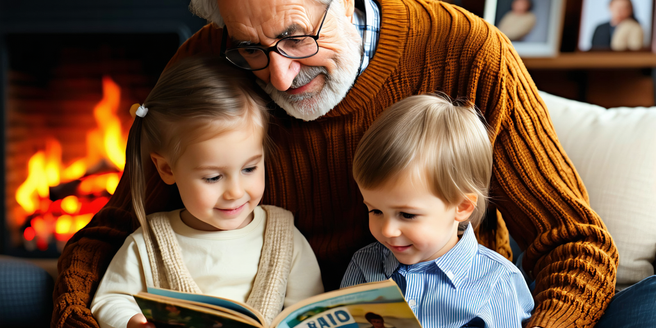
Understanding the Role of Grandparents in Modern Families
Grandparents today often assume diverse roles, acting as caregivers, mentors, and even co-parents. Their wisdom and life experiences bring a unique perspective to family dynamics, enriching the upbringing of their grandchildren. In many instances, they are the steadfast pillars upon which family routines are structured. Many modern families rely on their support, whether for daily caregiving or emotional bonding. As families evolve, understanding these roles helps navigate intergenerational interactions. Grandparents can provide stability in mobile societies and transmit family values and traditions, bridging the past with the present. In recognizing these roles, families can create harmonious relationships, balancing independence with interdependence.
Benefits of Grandparent Involvement in Child Development
Involving grandparents in child-rearing offers numerous benefits. Their involvement can enhance emotional security and social competence in children, offering an additional layer of love and support. Grandparents often share stories and traditions, providing children with a sense of belonging and cultural awareness. They also contribute to the child’s cognitive development by introducing different perspectives and problem-solving approaches. This intergenerational exchange can lead to valuable life lessons that are passed down. Furthermore, grandparent involvement can alleviate stress for parents, offering flexibility in family routines and promoting a tight-knit family unit. As children learn from their elders, respect and empathy are fostered across generations, enriching family life.
Creating Opportunities for Meaningful Interactions
Engaging activities are crucial for fostering meaningful interactions between grandparents and grandchildren. Simple experiences, such as cooking together or sharing hobbies, can cement lasting bonds. Planning regular family gatherings or outings can facilitate quality intergenerational time. Encouraging shared learning experiences, like reading or exploring nature, enriches the relationship, allowing both generations to learn from each other. Technology can also bridge the distance for those living apart, enabling regular communication. By prioritizing these interactions, families enhance emotional connections and ensure that the wisdom and experiences of older generations are passed on to younger family members.
Balancing Family Dynamics with Multiple Generations
Managing the dynamics of multi-generational households requires open communication and defined boundaries. Balancing respect for elders with the autonomy of parents is crucial. Regular family meetings can facilitate open discussions about roles, responsibilities, and expectations. Flexibility and compromise play key roles in maintaining harmony. It’s essential to recognize and address potential conflicts over parenting styles or household management to prevent long-term discord. Encouraging mutual respect and appreciation for each generation’s contribution can foster a nurturing environment. Ultimately, successful management of family dynamics involves understanding and valuing the unique strengths each generation brings to the table.
Addressing Common Challenges and Conflicts
Conflicts between grandparents and parents can arise from differing parenting philosophies or expectations. To address these challenges, open and respectful communication is key. Recognizing and valuing each generation’s perspective can help navigate disagreements. It’s essential to establish clear boundaries and agree on consistent approaches to discipline and child-rearing. Keeping the child’s best interest at the forefront fosters cooperation. Sometimes, involving a neutral third party or family counselor can provide clarity and mediate conflicts. By focusing on shared family goals and maintaining flexibility, families can overcome obstacles and create harmonious relationships that benefit all members.
Celebrating Cultural Traditions and Family Heritage
Grandparents play a pivotal role in preserving family traditions and cultural heritage. By sharing stories, recipes, customs, and languages, they keep ancestral practices alive for future generations. With their wisdom, grandparents serve as bridges between the past and present. Celebrating cultural festivals and rituals together deepens family bonds and imparts a sense of history and belonging to younger members. Encouraging children to participate in these traditions fosters respect and appreciation for their heritage. Grandparents’ narratives provide children with a sense of identity and community, enriching their worldview. This legacy of cultural knowledge and values is a timeless gift, promoting continuity and unity across generations.
